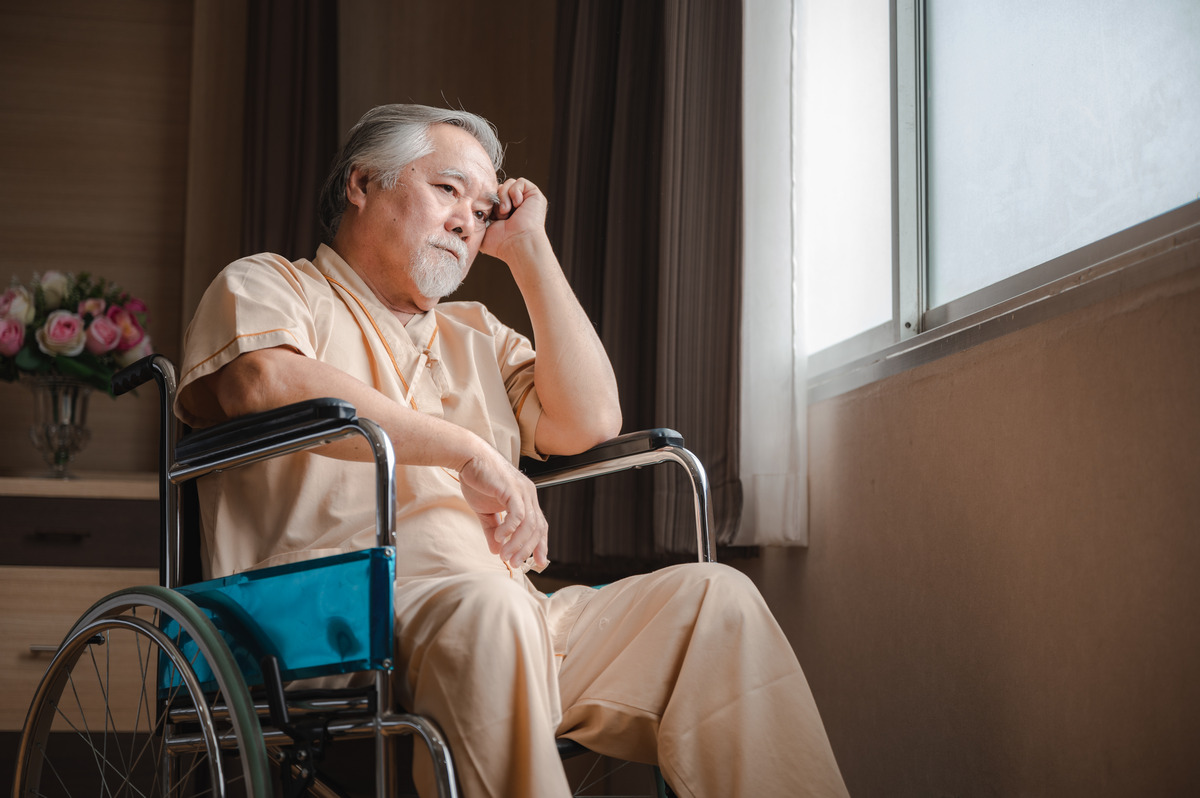Legal Rights of Victims of Nursing Home Abuse
When a loved one enters a nursing home or long-term care facility, families expect that they will be treated with care, respect, and dignity. Unfortunately, for many nursing home residents, this expectation is shattered by the devastating reality of nursing home abuse. Nursing home abuse is a severe issue affecting vulnerable individuals who may already have physical or cognitive impairments that make them more susceptible to mistreatment. Recognizing nursing home abuse victim rights is essential in ensuring justice and accountability for those who have suffered harm. These rights include the ability to report abuse, access legal remedies, and demand a safe and supportive environment free from neglect or harm. Families must understand these rights to advocate effectively for their loved ones and hold negligent facilities responsible.
The victims of nursing home abuse suffer from severe emotional, physical, and financial harm. They may feel isolated, helpless, and afraid to speak out, and their families often struggle with uncertainty about what legal steps to take. Understanding the legal rights of nursing home abuse victims is crucial for families who are dealing with such a heartbreaking situation.
In this article, we will delve into the legal rights of nursing home abuse victims, outline the steps families can take to protect their loved ones and explore the avenues available for pursuing justice. If you or a family member is experiencing nursing home abuse, you have rights, and legal action can help you seek justice for the harm done.
What is Nursing Home Abuse?

In the United States, nursing homes are regulated by both state and federal laws. These regulations are designed to protect nursing home residents and ensure that they receive proper care. However, violations of these regulations are alarmingly common, and many cases of abuse go unreported. The National Center on Elder Abuse estimates that one in ten older Americans experiences abuse, and it is believed that most cases of elder abuse are not reported due to fear or embarrassment.
Recognizing the signs of abuse is crucial for preventing further harm. Victims may suffer from physical injuries, emotional trauma, and neglect, and families need to be vigilant and aware of the warning signs of abuse.
Legal Rights of Nursing Home Abuse Victims?

At Roxell Richards Law Firm, we have extensive experience representing victims of nursing home abuse and their families. Our team can help you understand your legal rights, investigate the abuse, and pursue the compensation your loved one deserves. We offer compassionate and dedicated legal services to ensure that nursing home residents are protected and that those responsible for their abuse are held accountable.
Call to Action
If you or a loved one is a victim of nursing home abuse, it is essential to take immediate action to protect their rights. Roxell Richards Law Firm is here to help. Our experienced attorneys are committed to securing justice for victims of nursing home abuse and assisting families to navigate the complex legal process.
Don’t wait. Contact Roxell Richards Law Firm today for a free consultation Let us fight for the justice your loved one deserves.
Roxell Richards Injury Law Firm
6420 Richmond Ave. Ste. #135
Houston, TX z7057
Phone: (713) 974-0388
Fax: (713) 974-0003
FREQUENTLY ASKED QUESTIONS
1. What Are the Legal Rights of Nursing Home Abuse Victims?
Nursing home abuse victims have several necessary legal rights. These rights are designed to protect nursing home residents’ safety, health, and well-being.
Some of the critical legal rights include:
Right to Safety and Care: Nursing homes are legally required to provide a safe living environment for their residents. This means that the staff must protect residents from physical harm, abuse, and neglect.
Right to Medical Care: Nursing home residents have the right to receive proper medical care and attention. This includes receiving timely medication, treatment for illnesses, and regular check-ups by healthcare professionals.
Right to Privacy: Nursing home residents have the right to privacy, meaning their personal and medical information should remain confidential. They also have the right to privacy in their living space and personal interactions.
Right to Be Free from Abuse: Perhaps most importantly, nursing home residents have the right to be free from any form of abuse, whether physical, emotional, sexual, or financial. This includes protection from abusive staff, other residents, and anyone else who might be in the facility.
Right to Report Abuse Without Retaliation: Victims of nursing home abuse have the right to report abuse without fear of retaliation. This means that neither the victim nor their family can be punished for reporting abuse or neglect to authorities or regulatory agencies.
Family members and caregivers must understand these rights and take steps to protect their loved ones when they suspect abuse.
2. How Can Families Identify the Signs of Nursing Home Abuse?
Recognizing the signs of nursing home abuse is the first step toward taking action. While the signs of abuse can vary depending on the type of mistreatment, some common red flags to watch for include:
Physical Signs: Unexplained bruises, cuts, fractures, burns, or other injuries that do not have a reasonable explanation can be signs of physical abuse. Malnutrition, dehydration, poor hygiene, or weight loss may also indicate neglect.
Emotional and Behavioral Changes: Victims of emotional abuse may exhibit signs of depression, anxiety, fearfulness, or withdrawal. They may become more agitated or fearful, particularly around specific staff members.
Financial Exploitation: One of the most common forms of abuse is economic exploitation. If you notice that your loved one’s finances are suddenly out of balance, that they are being pressured into signing financial documents, or that money or valuables are missing, financial abuse may be occurring.
Living Conditions: Poor living conditions, such as dirty or unsanitary environments, inadequate heating or cooling, and insufficient medical care, can indicate neglect. Residents who are left in soiled clothing or bedding or who have unaddressed medical needs may be victims of neglect.
Verbal or Physical Abuse: Victims of verbal abuse may be subjected to threats, insults, or intimidation. Physical abuse can also involve the use of restraints or excessive force that causes harm.
If any of these signs are present, immediate action is important to ensure the resident’s safety and well-being. Reporting the abuse to the proper authorities and seeking legal advice is crucial.
3. What Are the Legal Options for Nursing Home Abuse Victims?
Victims of nursing home abuse have several legal options for pursuing justice. The type of legal action that can be taken depends on the specific circumstances of the abuse, including the severity and type of harm caused. Some of the critical legal options include:
Personal Injury Lawsuits: If a nursing home abuse victim has suffered physical or emotional injuries, they may be entitled to compensation for medical bills, pain and suffering, and other damages. A personal injury lawsuit can help victims and their families recover compensation for their losses.
Criminal Prosecution: In cases of severe abuse, such as physical or sexual assault, criminal charges can be filed against the abuser. This could result in fines, imprisonment, or other penalties. Criminal charges may be pursued by law enforcement or the state’s prosecutor’s office, but the victim or their family can also bring this to the attention of the authorities.
Civil Lawsuits Against the Nursing Home: If the nursing home itself is found to be responsible for the abuse (e.g., due to inadequate staffing, poor training, or failure to respond to complaints), a civil lawsuit can be filed against the facility. These lawsuits seek compensation for damages and can hold the facility accountable for its actions or lack of action.
Reporting Abuse to Regulatory Agencies: Victims and their families can report abuse to state regulatory agencies, such as the Department of Health and Human Services or the state’s long-term care ombudsperson. These agencies can investigate complaints and take appropriate action to protect residents.
An experienced attorney can help victims and their families navigate the complex legal process and determine the best course of action based on the circumstances of the abuse.
4. Can Family Members Pursue a Lawsuit on Behalf of a Nursing Home Abuse Victim?
Yes, family members can pursue a lawsuit on behalf of a nursing home abuse victim, mainly when the victim is unable to act on their behalf due to physical or mental impairments. In many cases, a family member can act as the legal representative for the victim, either through a power of attorney or guardianship arrangement.
For example, suppose a nursing home resident has had dementia or another cognitive condition that impairs their ability to understand or communicate their legal rights. In that case, a family member can seek justice for the victim by filing a lawsuit on behalf of the victim, seeking compensation for damages, and holding the responsible parties accountable.
Additionally, if the victim has passed away due to abuse, the family may be able to pursue a wrongful death lawsuit. This type of legal action seeks compensation for the emotional and financial impact of losing a loved one as a result of abuse or neglect in a nursing home.
5. How Can a Nursing Home Abuse Victim or Their Family Seek Legal Help?
Suppose you suspect that your loved one is a victim of nursing home abuse. In that case, consulting with an experienced attorney specializing in elder law or nursing home abuse cases is essential. A lawyer can guide you in investigating the situation, protecting your loved one, and taking legal action to seek justice.

